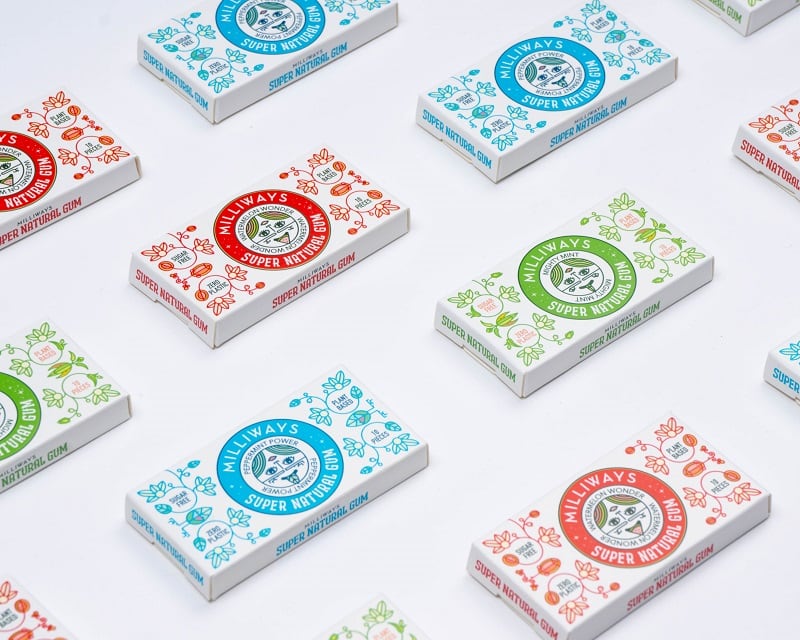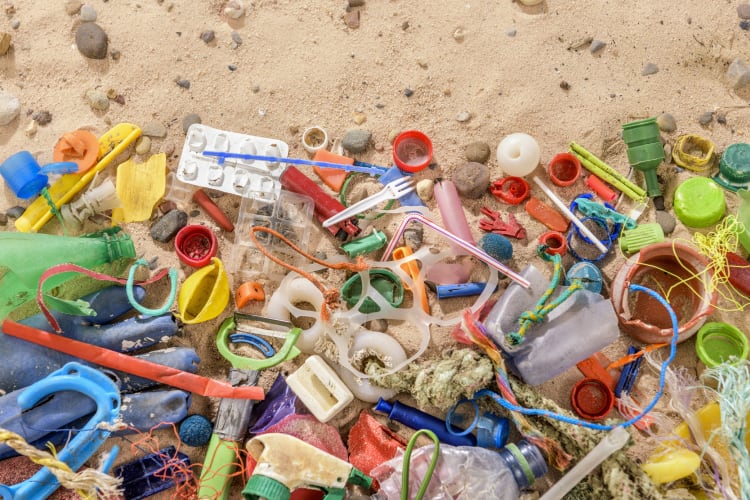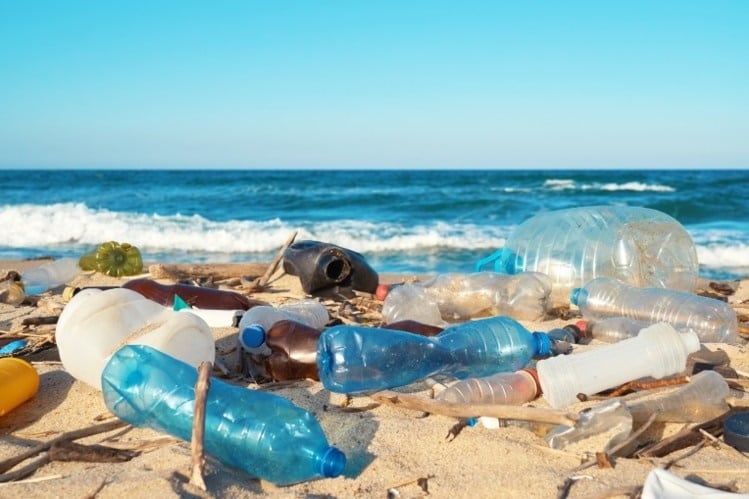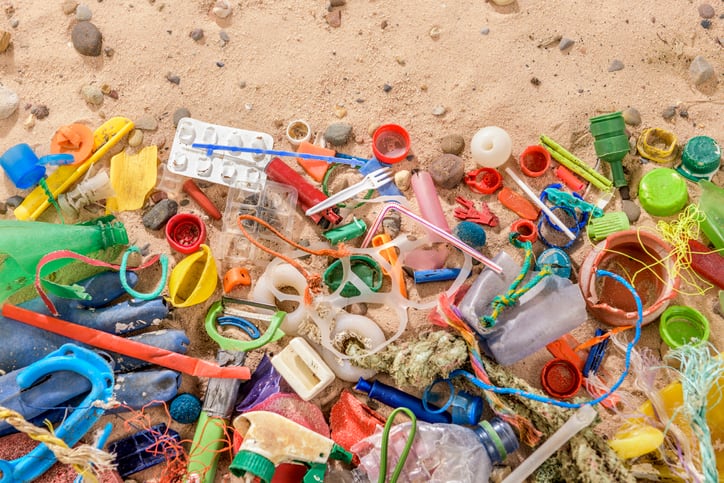Chew on this: every year enough gum is chewed to cover the whole of the EU. So says Tom Raviv, the founder of plastic-free chewing gum start-up Milliways. Where's it all landing up, he asks, after use? Either in oceans, landfills and stuck on pavements.
The 29-year old entrepreneur and long-time gum chewer created his brand after he discovered that conventional chewing gum brands put as ‘much plastic as you’d get in a drinking straw in each piece of gum’.
"One particular ingredient I stared to research was gum base which to my shock was made of petroleum derived plastics," he told FoodNavigator. “75% of people are unaware there is plastic in chewing gum,” explained Raviv. According to Milliways, often gum is made from plastic, often used to make carrier bags, resin and petroleum-derived paraffin wax.
This caused him concern about microplastics -- minute pieces of plastic measuring less than five millimetres that result from the breakdown of larger plastic items, such as water bottles. These have been found in everything from beer and honey to seafood and bottled water. No published study has yet directly examined their effects on people. It is generally accepted they are not harmful or at best minimal to human health. However, direct contact with microplastic particles may have possible adverse effect in cellular level, scientists believe.
He was further intrigued about what happens to this plastic after-use. "374 billion pieces of gum get chewed every single year and all of that is plastic,” he claimed. “It's the second most littered item on the planet after cigarette butts. Every single year all of those pieces that are discarded, whether that's irresponsibly or discarded in a bin, never biodegrade because it's plastic."
Returning to the roots of gum
To develop an alternative, Raviv went back to the origins of gum. Gum was initially thought to have been consumed centuries ago by the Aztecs and the Mayans who would extract and chew the extract from the sapodilla tree, called Chicle, to stimulate saliva a promote oral health. Conventional chewing gum since replaced Chicle with synthetic ingredients.
Raviv managed to find a raw material manufacturer in Mexico to supply him with Natural Chicle Gum Base and his 'super natural' chewing gum brand Milliways was born.
The start-up launched its plant-based, sugar- and plastic-free range last year in three flavours: Peppermint Power, Mighty Mint and Watermelon Wonder. The gum is available on Amazon and via the brand’s own website.
The gum is made using a carefully selected recipe which includes eight naturally-derived ingredients: sapodilla tree chicle sap, natural flavours, xylitol, stevia, gum arabic, vegetable glycerine, magnesium stearate and ethically and sustainably sourced carnauba wax.
Naturally-derived ingredients
Milliways said these ingredients made the gum biodegradable and healthier to consume than traditional gum. "We have eight ingredients versus conventional gum which has probably 15+ synthetic and artificial ingredients. All of ours are plant based and naturally derived. It takes from 5-8 months to biodegrade depending on where it's been placed after use,” Raviv told us.
Traditional gum’s sticky problem
Traditional gum is also difficult to dispose of. Given plastic doesn’t biodegrade. It is estimated to cost more than £100 million of taxpayers each year to remove gum from UK streets –using professional jet washing.
“Even this process is not a long-term solution as it breaks up the gum into microplastic which is washed away into the drainage system and then into our waterways, going back into our system,” he complained.
Calls for a single-use plastic levy
In response to the issue of plastic in chewing gum, Milliways has responded to a recent consultation by Government on ‘commonly littered’ items such as single-use cups and sachets. Milliways has recommended that the plastic content of a product is printed on the packaging of gum, a levy on chewing gum products containing polymers that are derived from petroleum is implemented and that 100% biodegradable, plant-based alternative gum is subject to zero-rated VAT.
“Our task as a plastic-free chewing gum brand is to raise awareness with the mass market that conventional gum has plastic; that the labelling for ingredients lists in conventional gum should be labelled that it includes single-use or petroleum derived plastic. So we're calling for action on that. "
He said the brand ultimately wants to drive price parity to make it affordable for the average consumer to move from plastic-based gum and do the 'sustainable thing' and choose plastic-free gum.
"Our aim is to make plastic-free gum the norm and accessible to the entire mainstream market,” he emphasised. “We want to change consumer habits for the better and i don't think consumers should pay a premium for that."
"We worked really hard to make sure that we developed a product that had no sacrifice in terms of quality, taste and texture because we're tasked with the mission of converting the everyday gum consumer from a plastic product that they’ve been chewing for decades over to something that needs to taste as good, especially as it comes at a slight premium because it costs us more to make."
Expect the product outside the UK any time soon, the young entrepreneur added. "Ultimately, the plastic-based gum issue is global and so are our ambitions,” he said. “Younger generations in particular are increasingly conscious of plastic waste but may not realise their gum is contributing to the problem. Milliways are not the only plastic-free option but we have taken the time to establish a sustainable and scalable model so more people can make a positive environmental choice and a healthier one too.”





